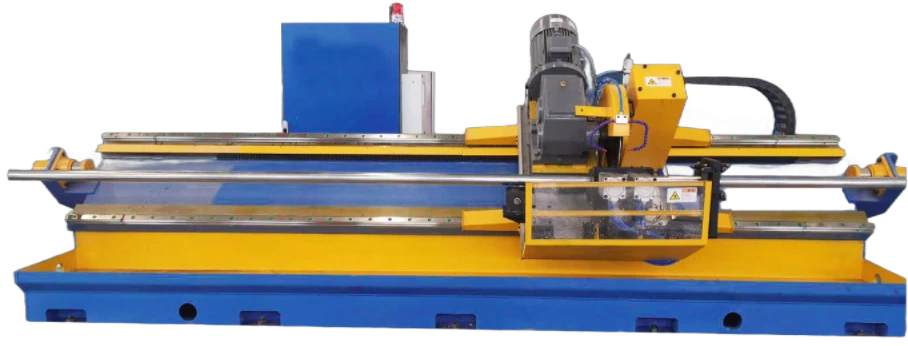Advanced Steel Stud Roll Forming Machine for Efficient Construction Solutions
The Importance and Functionality of Steel Stud Roll Forming Machines
The construction industry is constantly evolving, with modern techniques and materials playing a crucial role in enhancing efficiency and quality in building projects. Among the innovations that have come to the forefront is the steel stud roll forming machine. This machine is pivotal in producing steel studs—structural components that play a vital role in framing. In this article, we will explore the significance, working principles, and advantages of steel stud roll forming machines.
What is a Steel Stud Roll Forming Machine?
A steel stud roll forming machine is specialized equipment used to manufacture steel studs through a continuous process of shaping and cutting metal sheets. The machine operates by feeding a coil of steel into a series of rollers that gradually shape the metal into the desired profile, often resembling a C or U shape. Once the desired shape is achieved, the machine cuts the formed steel studs to specified lengths.
The Working Principle
The operation of a steel stud roll forming machine can be broken down into several stages
1. Feeding A coil of steel is fed into the machine. This steel typically has a high tensile strength to ensure durability.
2. Roll Forming The steel passes through a series of rollers in a carefully designed arrangement. Each roller performs a specific function, gradually bending and shaping the metal to achieve the desired cross-section of the stud.
3. Cutting Once the steel has reached the desired shape and length, a cutting mechanism activates. The form is cut to precise lengths, ensuring consistency and accuracy.
4. Outfeeding Finally, the finished steel studs are ejected from the machine, ready for packaging or immediate use in construction projects.
Advantages of Using Steel Stud Roll Forming Machines
steel stud roll forming machine

1. Efficiency Automation in the roll forming process significantly speeds up production. A steel stud roll forming machine can produce hundreds, if not thousands, of studs in a single day, minimizing labor costs and time.
2. Precision and Consistency Roll forming machines ensure that every stud produced is exactly the same size and shape. This uniformity is crucial in construction, where consistent material dimensions are required to meet structural integrity and building codes.
3. Waste Reduction This method of production generates minimal waste compared to traditional fabrication methods. The continuous nature of roll forming allows for better material utilization.
4. Versatility A steel stud roll forming machine can be adjusted to create various stud sizes and profiles. This flexibility is beneficial for manufacturers who need to cater to different construction requirements without investing in separate machines.
5. Durability and Strength Steel studs are inherently strong and lightweight, making them ideal for various construction applications, including commercial and residential buildings. Any defects or imperfections are minimized during the roll forming process, resulting in robust final products.
6. Eco-Friendliness Steel is recyclable, making steel studs an environmentally friendly choice for construction materials. The efficiency of roll forming also contributes to lower energy consumption, further reducing its ecological footprint.
Applications in the Construction Industry
Steel studs produced by roll forming machines are widely used in various applications. They are primarily employed in framing for walls, ceilings, and floors. In commercial buildings, steel studs provide a strong framework for drywall and insulation. Their lightweight nature allows for easier handling and installation, reducing labor costs and construction time. Furthermore, steel studs are resistant to rot, pests, and fire, making them a safer choice compared to traditional wood framing.
Conclusion
The steel stud roll forming machine represents a remarkable advancement in construction technology. Its ability to efficiently produce high-quality steel studs enhances the structural integrity of buildings while offering significant advantages in terms of speed, cost-effectiveness, and environmental impact. As the construction industry continues to seek innovative solutions, the demand for steel stud roll forming machines is likely to grow, solidifying their role as a staple in modern construction practices. With ongoing advancements in technology, these machines will undoubtedly become even more efficient and versatile, shaping the frameworks of tomorrow's buildings.
-
High Frequency Straight Seam Welded Pipe Production Line|BzZhou Xinghua|Precision Welding&EfficiencyNewsJul.30,2025
-
High Frequency Straight Seam Welded Pipe Production Line - BzZhou Xinghua|Precision Engineering&EfficiencyNewsJul.30,2025
-
High-Frequency Straight Seam Welded Pipe Production Line-BzZhou Xinghua Machinery Equipment Manufacturing Co., LTD.NewsJul.30,2025
-
High-Frequency Straight Seam Welded Pipe Production Line-BzZhou Xinghua Machinery Equipment Manufacturing Co., LTD.|Precision Manufacturing, High EfficiencyNewsJul.30,2025
-
High Frequency Straight Seam Welded Pipe Production Line-BzZhou Xinghua Machinery Equipment Manufacturing Co., LTD.|Precision Steel Pipe Manufacturing&Industrial EfficiencyNewsJul.29,2025
-
High-Frequency Straight Seam Welded Pipe Production Line-BzZhou Xinghua Machinery Equipment Manufacturing Co., LTD.|Precision Steel Pipe Manufacturing&Industrial EfficiencyNewsJul.29,2025


